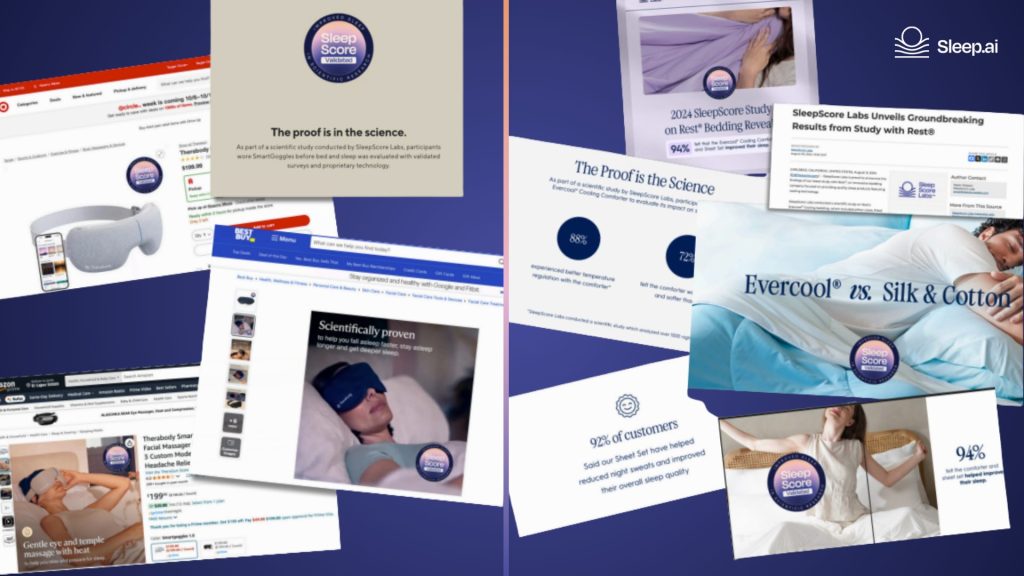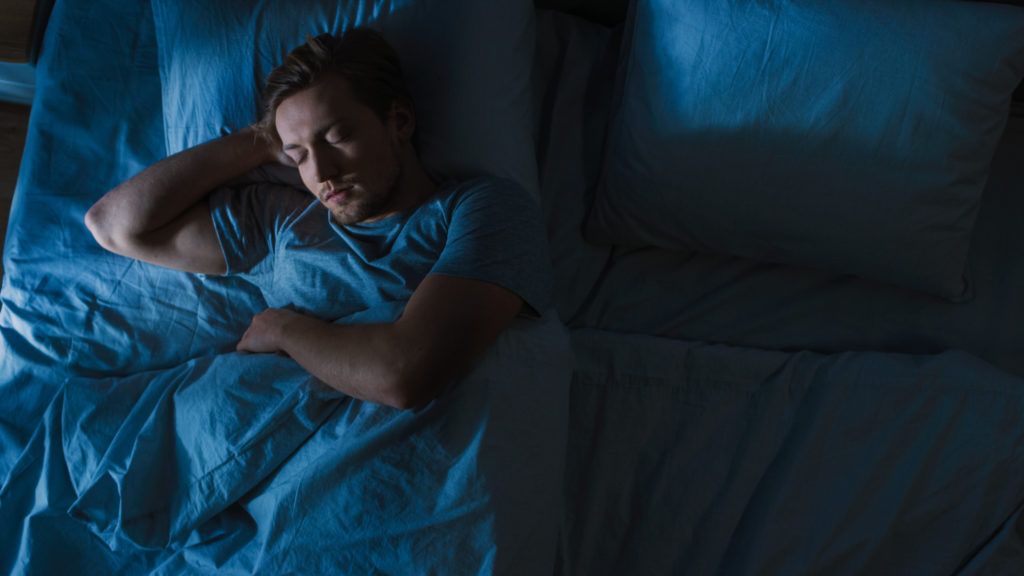
Blog
Validation Marketing: Why Your Study Should Be Your Strongest Sales Asset
When brands invest in scientific validation, they often focus on the study itself: the methodology, the metrics, the seal. But…
Introducing SleepScore
We deliver accurate data, actionable insights, personalized coaching and proven outcomes your customers need.
Sleep Insights
Last Published on 30th July 2020 by SleepScore Labs

If you’re constantly oversleeping and feel excessively drowsy during the day, your excessive sleep habits might be caused by an underlying condition.
Occasionally sleeping in when you’re sick or tired from an extra stressful day of work isn’t concerning, but if you suddenly need to sleep for more than 10 hours every night, it might be time to take a deeper look into your sleep health. Continue reading for a full explanation of what too much sleep entails.
Sleep is important, but too much sleep on a regular basis isn’t doing you any favors. According to the National Sleep Foundation, excessive sleeping may lead you to experience the following symptoms:
If you’re concerned about any excessive sleeping symptoms you’re experiencing, a sleep expert or your doctor can guide you toward a solution. A medical professional can help you determine if your excessive sleeping is caused by a sleep disorder or your sleep habits.

So how much is too much sleep? Well, it depends. Your sleep needs will vary over your lifetime, your sleep chronotype, age, activity level, general health, and lifestyle. The AASM recommends the following sleep amounts based on age that you can use as a general baseline:
Keep in mind that your personal sleep needs might deviate from the norm, but it doesn’t automatically mean that there’s an issue. If you’ve always been someone who needs a little extra sleep, then that doesn’t necessarily point to an underlying problem. Instead, look for sudden changes in your sleep schedule. Were you normally getting 7 hours of sleep and feeling fine, but now you need closer to 10 and feel terrible? If that’s the case, there may be an issue.
Likewise, there are often temporary causes of oversleeping, too. If you’re sick, you’re more likely to require some extra shuteye as your body tries to rest and build up the energy stores necessary to fight off an infection. Or, if you’ve run a marathon or experienced a high amount of acute stress, your body might naturally need more rest as a result to rebuild your brain and body. These one-off situations aren’t cause for concern.

There are several underlying causes that may help explain why you’re sleeping for an excessive amount of time. If you feel concerned about your sleeping habits and your sleep duration is negatively affecting your waking life, it’s a good idea to consult with your physician who can better guide you to sustainable solutions and treatment if necessary.
The risks of sleeping too much and conditions linked to oversleeping include:
If you consistently feel like you’re oversleeping, or feel the need to oversleep to get the rest you need, it’s likely worth talking to your physician.While a select few of us really do require more sleep than most, if you are sleeping more than the recommended amount, a talk with your doctor is the best next step.

If you’re ready to take control over your sleep schedule, there are some tips you can incorporate before you hit the hay.
Tip #1: Keep napping to a minimum: If you can’t fall or stay asleep at night, the best napping advice is to keep napping to a minimum.
Tip #2: Use a sunlight alarm: If you tend to wake up feeling groggy, try a Sunlight alarm. Sunlight alarms work by gently illuminating your sleeping environment and provide you with the visual stimulation you need to wake you up more naturally. Exposing yourself to light in the morning can make you feel more alert and helps cement your body’s natural circadian rhythms.
Tip #3: Maintain a consistent sleep schedule: If it takes a long time to fall asleep, or it’s difficult to wake up on time, a sleep schedule could be helpful. Once you find the right amount of sleep that works for you, stick to it. Try to keep your bedtime and morning wake up time consistent, even on the weekends and during vacation.
Tip #4: Track your sleep: If you want to get insights into your sleep, use a sleep diary to track your wake-up time and bedtime, or try a sleep tracker like SleepScore or SleepScore Max. Make sure to note any lifestyle variables, too, like drinking alcohol or going for a longer run than usual. Keep track of your sleep for at least a week before making a doctor’s appointment.
Although oversleeping isn’t talked about as much as insomnia, it’s important to recognize when this occasional problem becomes a chronic issue. By changing your lifestyle, sleep habits or working in tandem with your doctor, you can enjoy a more restful and timely sleep.
[ssl_banner_ad]